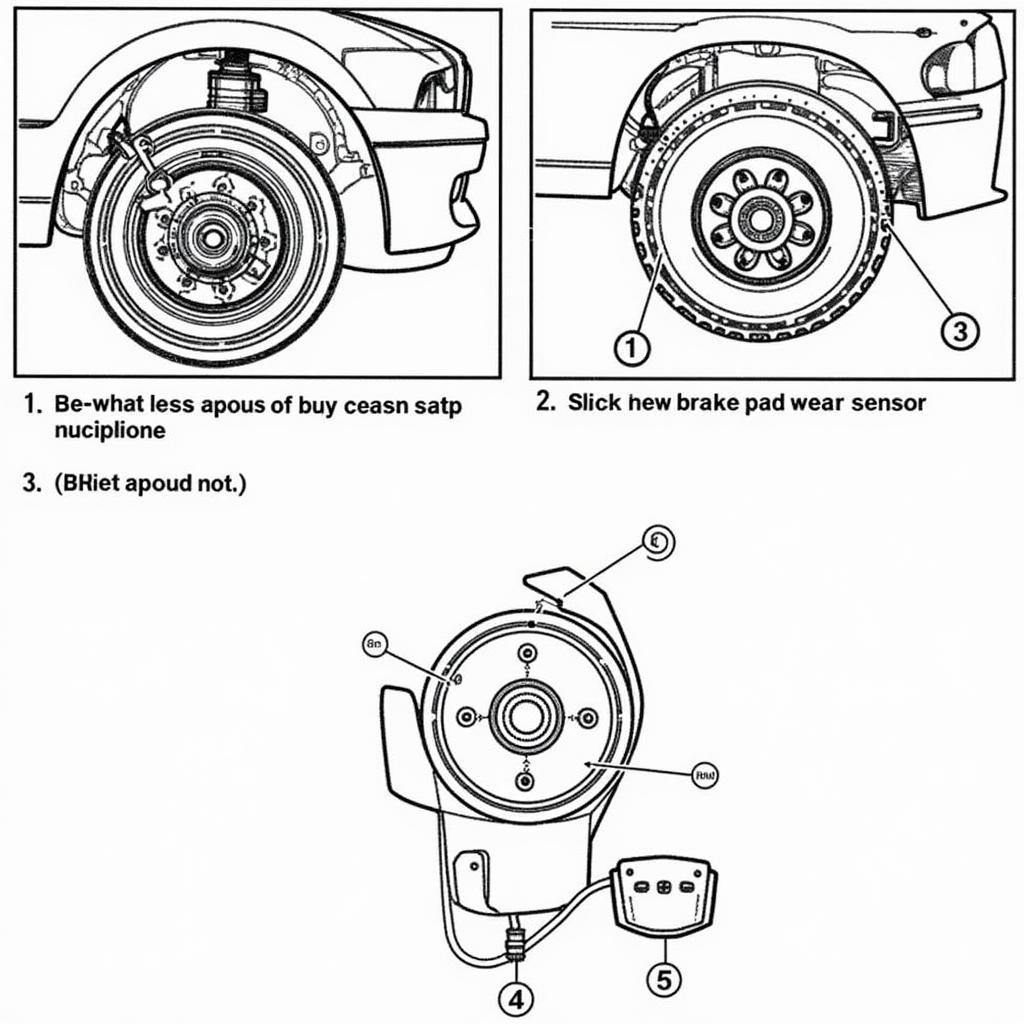The brake warning light on your VW Polo is a crucial safety indicator. Ignoring it could lead to serious consequences. This article covers everything you need to know about the brake warning light on a VW Polo, from common causes and diagnostic techniques to effective solutions and preventative measures. Let’s dive in and understand how to address this important warning sign.
One of the most common reasons for the brake warning light to illuminate is low brake fluid. Check your brake fluid reservoir immediately. If it’s low, you can top it up yourself, but it’s essential to identify the underlying cause of the leak. Learn more about this specific issue on our brake fluid warning light vw polo page.
Common Causes of a VW Polo Brake Warning Light
Several factors can trigger the brake warning light in your VW Polo. Here are some of the most common culprits:
- Low Brake Fluid: As mentioned above, this is a primary cause and could indicate a leak in the brake system.
- Worn Brake Pads: Brake pads have wear indicators that trigger the warning light when they reach a critical thickness.
- Faulty Brake Sensor: A malfunctioning sensor can erroneously activate the warning light even if there’s no actual problem.
- ABS Issues: Problems within the Anti-lock Braking System (ABS) can also trigger the warning light. This often requires specialized diagnostic tools. You can find more information on our vw polo abs brake warning light page.
- Parking Brake Engaged: Sometimes, the simplest explanation is the correct one. Make sure your parking brake is fully disengaged.
Diagnosing the Brake Warning Light
Diagnosing the cause of a lit brake warning light often involves a systematic approach.
- Check the Parking Brake: Ensure the parking brake is fully released.
- Inspect Brake Fluid Level: Check the brake fluid reservoir and top it up if necessary.
- Visually Inspect Brake Pads: Look for signs of wear and tear on the brake pads.
- Consult a Professional: If the problem persists, it’s best to consult a qualified mechanic. They can utilize diagnostic tools to pinpoint the exact issue. More information can be found at vw polo brake warning light.
Solutions and Preventative Measures
Addressing the brake warning light promptly is essential for your safety. Here’s a breakdown of potential solutions:
- Brake Fluid Top-Up: If the brake fluid is low, top it up with the correct fluid type. However, this is a temporary fix. You need to find the source of the leak.
- Brake Pad Replacement: Worn brake pads need replacing immediately to ensure optimal braking performance.
- Sensor Replacement: A faulty brake sensor will need to be replaced by a professional.
- ABS Repair: ABS issues require specialized diagnosis and repair.
“Regular brake maintenance, including fluid checks and pad inspections, can prevent many brake warning light issues,” says John Miller, a seasoned automotive technician with over 20 years of experience.
Resetting the Brake Warning Light
After addressing the underlying issue, you may need to reset the brake warning light. For specific instructions on resetting the light on your VW Polo model, refer to our vw polo brake warning light reset guide.
Conclusion
The brake warning light on your VW Polo should never be ignored. Addressing the issue promptly can prevent costly repairs and ensure your safety on the road. Regular maintenance, including checking your brake fluid and inspecting your brake pads, as outlined in our guide on vw polo brake pads warning light, can help prevent future issues.
“Remember, a proactive approach to brake maintenance is always the best strategy,” adds Miller. “It’s better to address minor issues before they escalate into major problems.”
FAQ
-
What does the brake warning light mean? It indicates a potential issue with your braking system, from low brake fluid to worn brake pads.
-
Is it safe to drive with the brake warning light on? No, it’s not recommended. It indicates a potential safety hazard.
-
Can I fix the problem myself? Simple tasks like topping up brake fluid can be done at home, but complex issues require professional assistance.
-
How often should I check my brake fluid? At least once a month and before any long journeys.
-
How long do brake pads last? Brake pad lifespan varies depending on driving habits and conditions, typically lasting between 25,000 and 70,000 miles.
-
What is ABS? Anti-lock Braking System (ABS) prevents wheel lockup during hard braking, improving steering control.
-
Why is preventative maintenance important? Regular maintenance can prevent costly repairs and ensure your safety on the road.

